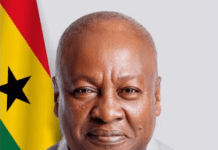Dear Sir,
I would like to bring a very important issue to the attention of your good self and to the National Communications Authority (NCA) with regards to how Customer Service staff of telcos handle complaints about Unsolicited Electronic Communication (UEC).
In summary, they always point fingers at supposed third-party organizations, anytime customers make complaints about UECs, for which the customer is being charged without their consent.
This finger-pointing “policy”, did not start today, and I have a number of instances to confirm this.
The first instance was many years ago (prior to the UEC Code of Conduct coming into force) when I first had an issue with UEC for which I was being charged without my consent. When I called my service provider, MTN, they quickly blamed it on their third-party value-added service (VAS) provider at the time. The company was MobileContent. Eventually, representatives of that company came to me, apologized and compensated me with GHS50 airtime.
In my conversation with the reps from MobileContent, they admitted to me that because telcos take a lion’s share of the VAS revenue, they were forced to push content to customers in bulk without requests from the customers, with the expectation that those who do not want the service will send STOP to cancel the subscription. So, if you don’t send STOP, it means you are okay with the service and they keep charging you for it, even if you are not aware. It was a strategy for them to shore up their revenue because the revenue share arrangement did not (and still does not) favor them. It is broad daylight robbery which fed on the ignorance of subscribers.
But at the time, there was no law that held telcos responsible for the conduct of their VAS partners, so they got away with the finger pointing, even though they took (and continue to take) the lion’s share of the booty from the criminal conduct of their VAS partners.
Fast forward, last year (2021), seven years after the Code of Conduct came into force, my MTN TurboNet SIM card was fraudulently signed on to a VAS content via short code 540 (Weather Report). When I complained to MTN, they still pointed fingers at a VAS partner called IGNITIA. When I contacted IGNITIA, they told me, per the Code of Conduct, they don’t sign on any MTN customer unless MTN gives the person’s number to them to sign him or her on.
So, whereas MTN pointed fingers at IGNITIA, the latter also directed the issue back to MTN. When I confronted MTN with what IGNITIA said, they refused to continue that conversation and just apologized to me and refunded my money. They then promised to clean up their onboarding practices and refund moneys to every affected customer. I can’t confirm if they lived up to that promise, but I can confirm that subsequent to that, I was signed on to two other services I never requested for – NAVARA and SELFIE STAR.
The third instance was just recently, when a customer called Abraham Kwabena Asamoah called MTN customer service and complained about messages he received from MTN’s 175 asking him to approve a request he supposedly made for a service called TASTY MEALZ on short code 1120.
The customer service person on that occasion, gave Abraham two very questionable response – one of which was later found to be completely false.
- He said the short code 1120 belongs to HUBTEL, and that the customer may have clicked on a Hubtel advert online and made the request for the TASTY MEALZ without knowing.
- He also said MTN does not know how VAS requests come in and they could not exactly tell the customer the channel via which he made the request.
First of all, my checks proved that the what the customer service person said about Hubtel was false because short code 1120 does not belong to Hubtel.
I also found that Hubtel’s online onboarding process involves sending an OTP (onetime password) to the customer to confirm request even before routing the request to the telco to do their two-step verification before the customer is signed on. But that request could not have come from Hubtel because the short code is not even theirs.
Secondly, it is very worrying that the MTN Customer Service person would tell a customer that MTN cannot tell exactly how a request came through, even though the telcos are required to RETAIN RECORDS of the entire process, including proof of request, confirmation and final sign on. How would MTN not know the channel via which the request came through, but are quick to just send nuisance reminders for approval, just so that they can take the customer’s airtime?
The finger pointing does not stop with MTN. I also gathered from Hubtel that Vodafone also pointed to them as the owners of a particular short code, which was found to be violating customers rights. But investigations by the NCA proved the short code did not belong to Hubtel at all.
Sir, please, I believe strongly, that for the recent NCA Directive on UECs to work effectively, the Customer Service staff of the telcos must be reoriented to stop pointing fingers at their VAS partners and other third-parties even before they know exactly what the case is. The NCA Code of Conduct now places the onus entirely on Telcos to control the onboarding process. Indeed, the Code says if telcos outsource that role to third-parties and those third-parties abuse the process, the telco will be held entirely responsible.
It would appear that not just telcos’ Customer Service persons do the finger pointing thing. When telcos held a forum on UECs, during the 2020 election period, they focused mainly on pointing fingers at political parties for sending UECs to telcos’ subscribers, and also sought to create the impression that subscribers give out their contacts at functions and the organizers of those functions may be the ones sending UECs to the subscribers. They have also said on record (many times) that the third parties directly licensed by the NCA are the ones circumventing the process. But the case of my TurboNet SIM and my 78-year-old mother’s MTN number that were signed on to some paid services, are examples of numbers that were never given out to any event organizer and yet they were signed on to paid services.
I would therefore like to crave on indulgence to impress it upon telcos to stop their customer service staff from issuing those template and sometimes false responses to customers regarding UECs. They must properly investigate every reported case and give customers truthful and honest response, to ensure a more informed decision by the customer on what to do next.
It is also my conviction that the NCA must ensure that the telcos run a system that allows the customers to also retain proof/record of his/her request for an VAS content and also the confirmation messages must come in the form of regular SMS than can be retained on the customer’s phone, instead of the popups that vanish after the customer’s action. Keeping records on both sides of the transaction makes verification easier.
I really do trust that you will intervene in this matter also to ensure that the consumer is well protected and empowered to be in control of their airtime.
In service to the country.
Samuel Dowuona
Managing Editor, Techgh24.com
Lead Advocate, SqueakGh











